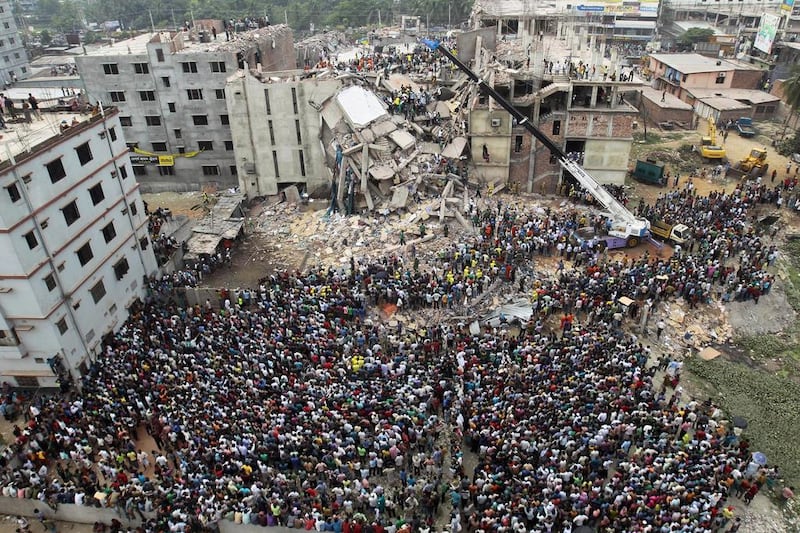Dhaka // A Bangladesh court Monday put 38 people on trial for murder over the deaths of more than 1,100 people when a building housing garment factories collapsed in 2013.
The defendants, who include the owners of the Rana Plaza compound and of factories in the building, face the death penalty if convicted.
“In all 41 people were charged. Among them 38, were indicted with murder and the other three for helping the main criminal, Sohel Rana, to escape,” said prosecutor Abdul Mannan after the tril opened in a Dhaka court.
At least 1,138 people died in the building collapse, one of the world’s worst industrial disasters. Rescuers struggled for weeks to retrieve the bodies from the ruins but some people are still unaccounted for.
The tragedy highlighted the appalling safety standards in Bangladesh’s Dh103 billion garment export industry, the world’s second largest after China. It triggered demands for western retailers to help introduce sweeping reforms including new safety inspections and higher wages in the industry, which employs around four million workers.
A host of western retailers had clothing made at the factories housed at Rana Plaza, including Italy’s Benetton, Spain’s Mango and the British low-cost chain Primark.
Defence lawyers have said their clients are not guilty of the charges because they did not intend to kill the victims.
“I’ve said my clients including the owner of the building, Sohel Rana and his parents, were charged with murder just to appease the people,” said Masum Iqbal, who represented eight of those indicted.
“They did not commit any murder.”
Last month the Dhaka court ordered the trial of 18 people, including Mr Rana and his parents, for flouting construction laws.
Mr Rana became Bangladesh’s public enemy number one in 2013 after survivors recounted how they were forced to start work despite complaints of cracks appearing in the walls the previous day.
Prosecutors say he and his parents illegally extended a six-storey building into a 10-storey factory complex without making the necessary structural changes.
In all 34 defendants appeared in court on Monday. The other seven are still on the run.
* Agence France-Presse





